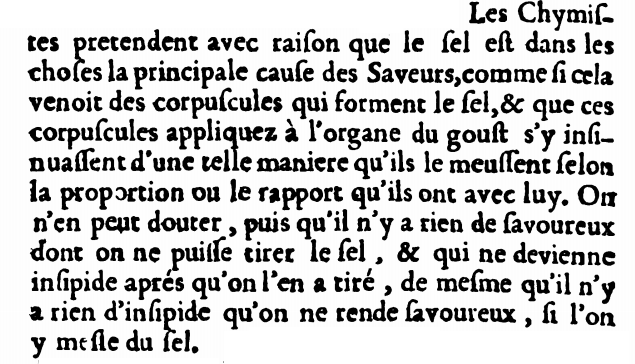Is there any evidence of any usage in any francophone country to indicate that the French adjective “savoureux(se)” is being used to replace the adjective “salé(e)” or that “savoureux(se)” is being used to mean “non sucre(e)” to describe food, similar to the phenomenon occurring in American English described below, and if this is happening in the French language, are there any linguistic or etymologic justifications for it?
(Here's what's happening/has happened in/with/TO American English)
Over the last 5 to 10 years in American English, makers of certain foods/snacks (and their marketing associates on Madison Avenue) have accomplished a brilliant “coup” by successfully replacing an adjective that is considered evil by the growing number of health-conscious people in the U.S.A, (i.e.. “salty”) with one that theretofore meant “having a pleasant taste or smell” to the vast majority of American consumers, (i.e., “savory”).
Salty snacks are now called savory snacks; salty crepes are now called savory crepes; essentially anything that isn’t “sugary” or “sweet” is now called “savory.”
(My favorite bar is even considering changing its name from “The Salty Dog” to “The Savory Dog” and worse yet, shutting down its smoking section. Needless to say that I won’t return if any of that happens!)
[Please note: I'm NOT asking why this is happening in the U.S. because I am aware that the British meaning of their "savoury" has long included 'not sweet," and that the Japanese translation of "savory" (the plant) is "Umami", giving justification to people less skeptical of 'Madison Avenue' than myself to cite either or both of these two facts to explain the phenomenon I describe]
[Please note also, that I did do some research (see below) on my own before deciding to ask my question here, and I did find a reference to “du sel” at “Trésor de la langue française” under “savoueux(se),” but it wasn’t under the “food/drink” definition. It was instead under the figurative definition for “things” (other than food or drink, perhaps??) and “people” so I really don’t think that the answer to my question could have been easily found in a dictionary (either by inclusion or omission)]
A. − [En parlant d'un aliment plus souvent que d'une boisson]
(I could find no reference to salt/salty or non-sugary/unsweet under this definition)
B. − Au fig. 2. Qui a du charme, DU SEL, qui séduit l'esprit, stimule l'attention, l'intérêt. Synon. piquant. (emphasis added)
(Other than the "du sel" mentioned in the heading above, I could find no other reference to nor examples using "du sel," “salé(e),” or "non sucré(e)" under this definition)
(One final note of a personal nature: If this has started to happen in French (and if there are no linguistic or etymologic reasons for it), please fight against it in the name of all things good and salty!)

